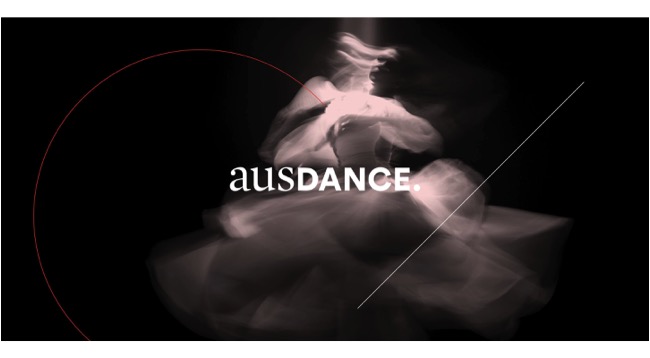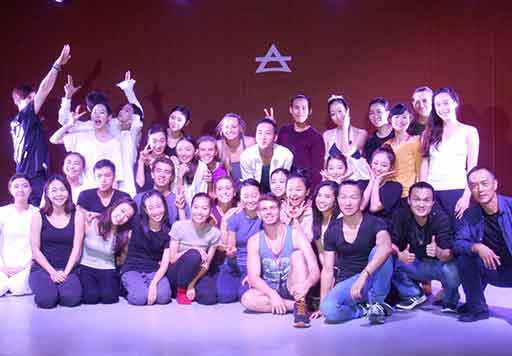Independent practice
News / Blog / Press Releases / Events
Ausdance calls for government stimulus to include arts workers

As we are all very aware, the arts and live performance have been devastated by the impact of COVID-19, along with the rest of the community.
Any businesses that practice in the arts sector, be they for-profit or not-for-profit, big, small or individual, must be included in the upcoming economic stimulus package. In the dance sector there are studios, performance companies and individuals who have had their work lost or diminished to the point of closing down. Any government stimulus for business must include arts workers, and take account of issues such as rent and mortgage assistance, freezing of utility bills, and rapid responses by Centrelink, including the abandonment of waiting times.
With so many independent practitioners in dance, we implore all governments to find ways to support individuals and sole traders through this crisis. Artists have always been extremely resourceful in sustaining their practice through normal times. Their opportunities for other work though, have now diminished to the point of non-existence and, despite their many creative resources, the financial and artistic consequences for them are dire.
Eventually the pandemic will pass. We don’t know when. When it does, the creative industries, and especially the arts, will be the leaders in reviving the spirits of the community and working with all Australians to restore society and the economy. Everything possible must be done to ensure that artists are actually around to do so.
If you want to contribute to Ausdance's knowledge of the impact of COVID-19 on your practice, please complete this survey.
For further information contact:
Paul Summers, Ausdance National President
Mobile 0417 925 292
Lewis Major receives Keith Bain Choreographic Travel Fellowship
At the 21st Australian Dance Awards (8 September 2018), Ausdance National awarded the Keith Bain Choreographic Travel Fellowship to Lewis Major. The fellowship provides financial assistance for an emerging choreographer to travel internationally with the sole purpose of developing and extending their choreographic practice.
National Dance Forum 2017: Dance in the Digital Domain
Tuesday 22 August 2017
For immediate release
Australia’s peak dance organisation, Ausdance National, will host a two-day forum next month bringing together dance makers, producers and presenters for a highly topical forum focusing on the future of dance within the digital domain. The National Dance Forum is Australia’s key platform for dance artists, industry professionals and educators in providing rich opportunities to discuss, debate and collaborate with some of the most influential individuals and organisations in the country.
National forum to explore dance practice in the digital age
16 May 2017
The 2017 National Dance Forum will bring together makers, producers and presenters to discuss and share knowledge on current digital practices and technological developments. The two-day forum will focus on strengthening the dance sector’s capacity within the digital domain.
Led by the dance sector’s advocate for 40 years—Ausdance National—the fourth National Dance Forum (NDF2017) will take place at the Victorian College of the Arts in Melbourne, 25–26 September 2017 and will follow the Australian Dance Awards (Arts Centre Melbourne, 24 September 2017).
Dance artists, companies, presenters and researchers looking for ways to grow meaningful audience relationships and understand the issues around making art in a digital environment, need to attend.
World Dance Alliance update March 2017
This year’s WDA Global Summit will be held from 23–28 July in St John’s, Newfoundland, a beautiful Canadian city on the east coast. Titled ‘Dancing from the Grassroots’, there will be many exciting events—performances, a conference including Pecha Kucha presentations, panel discussions and papers, and of course a Choreolab and master classes. We hope many Australians have made submissions to participate and look forward to once again having great representation from Australia at all events. Registrations will be open shortly.
Another opportunity available to Australian Ausdance members is the International Young Choreographer Program (ICYP), which offers fellowships to eight young artists: three from Taiwan, three from other Asia Pacific countries, and one each from WDA Europe and WDA Americas.
This year Australian Scott Ewen has been selected to participate in the ICYP. Scott attended the WDA Choreolab as a a highly regarded choreographer last year in Seoul. Congratulations Scott!
Ausdance members are automatically members of the WDA through Ausdance National’s partnership arrangement that includes publication of Asia Pacific Channels, access to choreographic fellowships, and discounted event attendance. Make sure you’re an Ausdance member before applying for any of these events.
 Scott Ewen (front) with dancers and choreographers from the 2016 Choreolab at the WDA festival in Seoul. Choreolab convenor Jin-Wen Yu is kneeling, on the right. Photo: Suling Chou.
Scott Ewen (front) with dancers and choreographers from the 2016 Choreolab at the WDA festival in Seoul. Choreolab convenor Jin-Wen Yu is kneeling, on the right. Photo: Suling Chou.National Indigenous Dance Forum—join the Curatorial and Community working groups
The National Indigenous Dance Forum (NIDF), in partnership with Yirramboi Festival (Melbourne Indigenous Arts Festival), will take place from 5–7 May 2017 in Melbourne.
It's time to get involved! Be part of the NIDF curatorial or community working groups (or join BOTH).
World Dance Alliance Asia Pacific 2016 conference: call for performances, choreolab and symposium
In 2016, the Korean chapter of World Dance Alliance Asia Pacific (WDAAP) will host the WDAAP Annual General Meeting and surrounding activities as the event Dance routes—danced roots: connecting the local and the global. It will include showcase performances, an international choreolab and a symposium.
Key information
- Conference theme: Dance routes—danced roots: connecting the local and the global
- Conference location and date: Seoul, Korea, 21–24 July 2016
- Apply to present: performances, scholarly, performative and Pecha Kucha style presentations
- Apply to participate in the Choreolab
- Submission deadline: 10 January 2016
- Acceptance notification: 28 February 2016
- For detailed information and to apply, visit the World Dance Alliance website
Applications are now open for participation in the following events:
- Showcase Performances
- International Choreolab
- Symposium—call for proposals
The Showcase provides a concert platform for professional choreographers and performers, and pre-professional artists training in dance academies. The performances will take place in the theaters located in the ShangShin Univeristy or Arko Theater and will be open to registered participants of the WDAAP event and the general public.
The International Choreolab is designed for four emerging and mid-career choreographers to work intensively for almost one week under the mentorship of one Korean established dance artist and one internationally known choreographers (to be announced) resulting in a public showing of works in progress. You can apply to participate in the Choreolab as a choreographer or as a dancer.
The Symposium theme focuses on the idea of global and local connectivity through dance, looking at roots as well as routes that dance and dancers negotiate in different cultures of the contemporary world. Presentation formats include scholarly, performative and Pecha Kucha style presentations.
Australian arts funding—September 2015 update
In 2013, 702,000 Australians attended a performance, workshop, or school activity facilitated by a national dance organisation (Key Arts Organisation (KAO) or Major Performing Arts company (MPA)). Australian dance continued to make a significant impact overseas, reaching an international audience of 69,000 through 122 performances by KAOs and MPAs across Europe, South America and the Middle East. From a small amount of funding support our dance companies are engaging audiences, sharing Australian cultural experiences and supporting developing artists.
However, this is all at risk due to the changes in funding being rolled out following the May 2015 Federal Budget. The Australia Council for the Arts has suffered a $34 million cut over the past two budgets, reducing overall funding from $218.7million to $184.5 million.
These reductions have been focused on initiatives and sector grants and the cessation of programs such as ArtStart, Australian Fellowships and Artists In Residence programs.
$110 million over four years has been directed to the Ministry for the Arts to facilitate the National Program for Excellence in the Arts (NPEA). The guidelines for this program are being drafted, but initial indications show the NPEA will not support individual artists or organisational sustainability.
The arts sector, concerned about these changes, were successful in lobbying the Senate to inquire into these changes. The inquiry is being undertaken by the Senate Legal and Constitutional Affairs Reference Committee and received over 2000 submissions from the public, many opposing the changes.
The inquiry is hearing from a diverse range of artists and organisations, including many dance focused groups. The Committee is due to report in November.
The arts broadly and the professional dance sector specifically contributes to the understanding of Australia’s culture and international profile. While MPA dance companies earn 73 percent of their income via box office and other non-government support, internal Australia Council reporting highlights the reliance small to medium companies have on government support to be able to deliver their creative output. In 2013, dance key organisations received 69 percent of all income from government sources, compared to 37 percent in music and 50 percent in theatre.
Despite a recent increased focus on growing private sector funding by KAO dance companies, it remains only approximately $1 million a year, spread across 13 organisations. While this focus has seen an increase on previous years (260 percent since 2008), private funding for the arts has predominately been directed at larger, more established arts organisations. Small to medium organisations need a growth in base capacity and ongoing stability to be able to harness such relationships.
This is a challenging time for all involved in making professional dance. Follow the debate at #freethearts on Twitter and Facebook and via the Ausdance advocacy page.
ArtsPeak’s response to the draft guidelines for the National Program for Excellence in the Arts
ArtsPeak's response to National Program for Excellence in the Arts draft guidelines (360KB PDF)
Dear Minister Brandis
Re: draft guidelines for the National Program for Excellence in the Arts (NPEA)
ArtsPeak (the confederation of Australian national peak arts organisations and arts industry councils) welcomes the opportunity to respond to the recently released draft guidelines for the Federal Government’s National Program for Excellence in the Arts (NPEA). ArtsPeak particularly welcomes the Government’s statement about the intrinsic value of the arts:
While valuing the many secondary benefits which flow from arts activities, the Program seeks to celebrate the intrinsic capacity of the arts to engage, inspire and make meaning for all Australians.
1. Sustainability
Watch National Dance Forum 2015 panel discussions
- Transforming the form: changing structures and their effects
- The subtleties and nuances of innovation.
- Discourse: How is dance written about, spoken about and communicated?
A partnership between the Australia Council for the Arts and Ausdance National, the NDF is a biennial gathering for the Australian professional contemporary dance sector. It fosters the artistic development of dance in Australia by providing a platform for discussion between Australian choreographers, dancers, independent artists, artistic directors, educators, researchers and dance producers.
Dancehouse residency programs
The Housemate programs reflect Dancehouse's commitment to advancing innovative contemporary dance in Australia by instigating and nurturing rigorous discourse and encouraging wide-ranging, movement-based experimentation and innovative choreographic practices.
Both Performance and Research Housemate programs provide the artist with extensive time, generous financial support and a thoroughly mentored environment. The Housemate program is one of the very few fully paid artist-in-residence programs in the world. Artists are given between 8 and 14 weeks of free studio space, a salary package (or pro rata), and administrative, mentoring and production support. Housemates are selected by a peer advisory panel from a national call for applicants.

